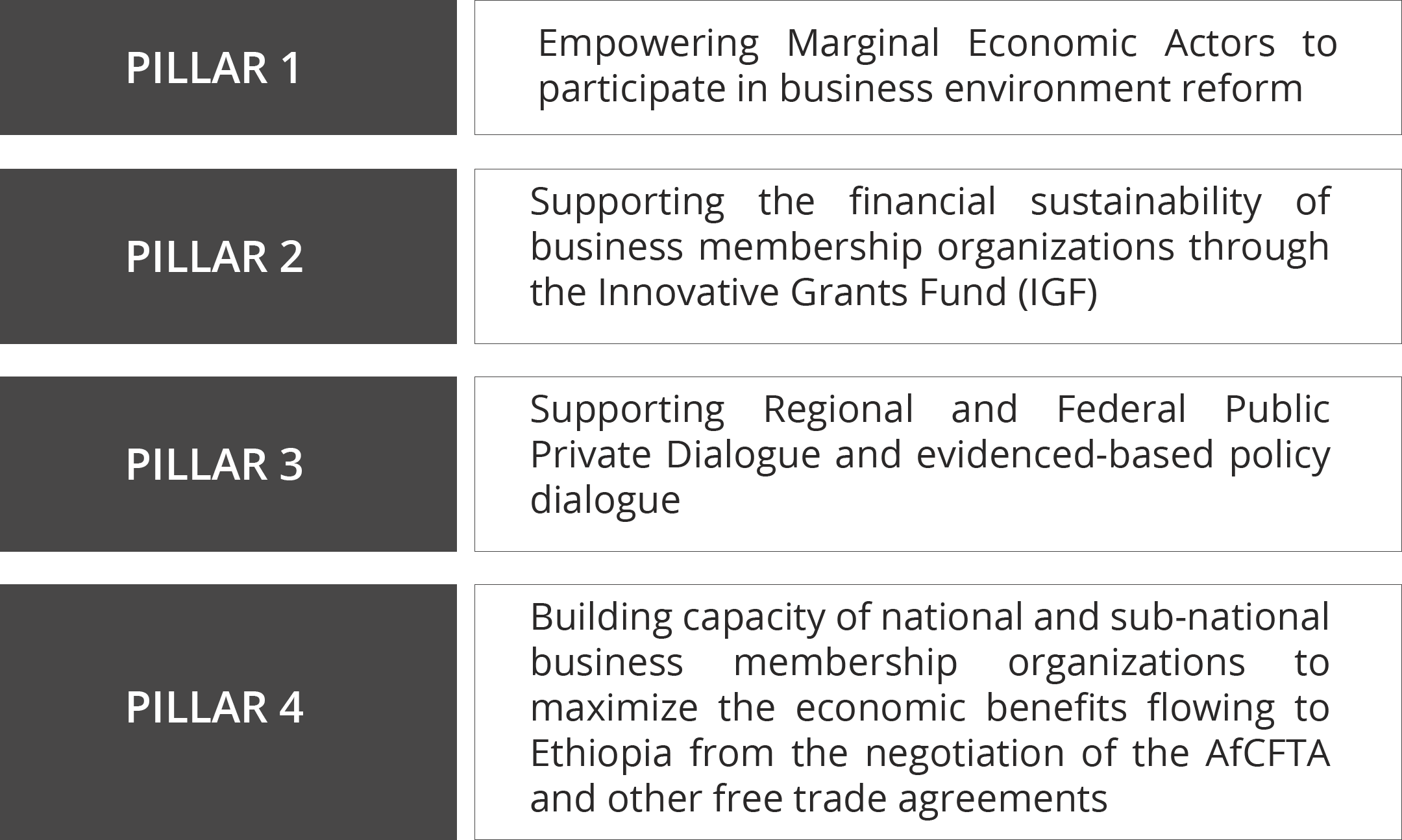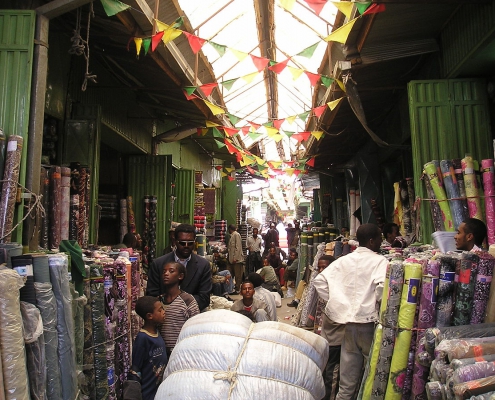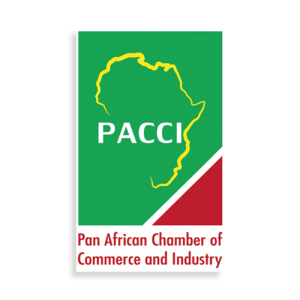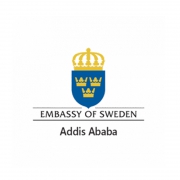Project Rationale
Inclusive economic growth is about empowering the private sector to advocate policy changes that promote a better business enabling environment.
With a robust private sector that is empowered to engage in enacting inclusive economic policies, Ethiopia can move towards a growth-driven market economy. It is crucial that private sector development in Ethiopia reflects the priorities of the business community in order to support inclusive growth, in particular Ethiopia’s many marginal economic actors: women entrepreneurs, self-employed youth, micro-enterprises, and the informal sector in general. While their individual economic contribution is small, together they make up a large majority of the Ethiopian business community – and a sizeable segment of the country’s population.
Empowering all members of the private sector, from large-scale economic actors to those in the informal sector, will allow the private sector to take a greater role in the economic debate, and ultimately allow more Ethiopians to share in the fruits of economic transformation.
The concurrent restructuring of the Sida-sponsored PSD Hub programming is an opportunity to re-tailor Sida’s private sector development work to a political environment that is increasingly open to private-sector led development and inclusive economic growth.
The PSD Hub served as capacity-building mechanism for the Ethiopian private sector since 2012 and was home to Ethiopia’s first public-private consultation framework, the Ethiopian Public Private Consultative Forum (EPPCF). Since 2012, the PSD Hub has supported public private dialogue and capacity building for the Ethiopian private sector. In 2015, Sida signed an agreement with the Ethiopian Chamber of Commerce and Sectoral Association (ECCSA) for phase III of the PSD Hub with a focus on research, advocacy and public-private dialogue and capacity building interventions.
As part of these interventions, the enhancement of the Ethiopian Chamber system and the building of the financial sustainability of BMOs through the Innovative Grants Fund (IGF) intended to create an enabling business environment to the private sector actors and contribute to the economic growth of the country. Based on recommendations in the PSD Hub Midterm review report, conducted by Genesis Analytics in 2018/2019, Sida decided to re-establish the PSD Hub as a program independent from any potential beneficiary organization, such as ECCSA, due to skill and personnel constraints[1].
[1]Genesis Analytics.“MTR of the PSD Hub Capacity Building for the Sustainability of the ECCSA Phase III Project and the Assessment of a Small Grant Project” .Midterm Review Report. February 19 2019.
PACCI : Pillar 3&4 Activities
Pillar 3: Public Private Dialogue
Activity 3.1: Re-assess government and private sector priorities for public private dialogue
Activity 3.2: Complete studies to inform PPDs
Activity 3.3: Conduct national public private dialogues
Activity 3.4: Follow up meetings and advocacy on public private dialogue commitments.
Pillar 4: BMO Capacity Building
Activity 4.1: Open call for technical assistance
Activity 4.2: Raise awareness of regional trade opportunities
Consortium of Partners Introduction
Pillar 1: CIPE - Center For International Private Enterprise

CIPE’s Africa team in Washington D.C. combines deep expertise on Ethiopia with technical capabilities around business advocacy and collective-action programming, while CIPE’s country director in Ethiopia, Hailemelekot Asfaw, is widely recognized as a key resource on the Ethiopia’s organized private sector.
CIPE has led business advocacy and/or public-private dialogue programs across all Ethiopian regional states and built up a network of more than 85 regional chambers and business associations in the process – including women’s entrepreneurship groups, youth associations, and other organizations representing marginal economic actors. CIPE’s consortium partners PACCI and IA will be able to provide their deep expertise in inclusive community engagement, grant management, and leveraging regional trade opportunities in Ethiopia at the national and international levels.
Pillar 2: IA -Initiative Africa

Initiative Africa (IA) is a local Ethiopian NGO established in 2004 to advance good governance and democratization. In 2009 the organization focused on Education to facilitate access of quality education to the future generation of Ethiopia and empower them with knowledge. IA also worked on promoting sustainable livelihood activities to broaden the scope of economic opportunities and enhance quality of life. To fulfill its mandate, IA formed relationships with over seventy NGOs and professional organization – e.g. the Confederation of the Ethiopian Trade Union, the Chambers of Commerce, the Ethiopian Employers Federation, the Ethiopian Economic Association, the Ethiopian Teachers Association and more– on different aspects of business, social and community development and up-liftment.
Since 2014 most of IA work involved providing grants to partners; over 150 projects in support of clearly defined activities designed to achieve a specific objective that aligned with IA’s mission and criteria. IA was awarded the NGO Benchmark certificate of the Société Générale de Surveillance SGS. This certification demonstrated IA’s compliance with internationally accepted NGO management best practices. For this project IA will be responsible for managing the Innovation Grant Fund (IGF).
Pillar 3&4: PACCI - Pan African Chamber of Commerce and Industry

PACCI is an international organization established in 2009 representing over 20 million businesses in Africa through 51 members(42 national associations of chambers of commerce and industry and 4 sub-regional chamber organizations, 5 industry associations). PACCI acts as the eyes, ears and voice of the business community at AU level. More than 95% of these businesses are small and medium sized enterprises (SMEs). To keep pace with the ever-evolving continental trade landscape, PACCI actively participated in all the technical advisory committee meetings related to the AFCFTA negotiation. PACCI organized three biennium conferences under the theme ‘Africa Prosperity’discuss the challenges and opportunities of the AfCFTA with government officials, lawyers, traders and company representatives from various industries.
The efforts of a remarkably large and qualitative group of African business and trade experts has allowed PACCI to provide the AUC Secretariat in Addis Ababa and African government trade officials with practical input on ways to engage the private sector in the implementation of the AfCFTA. With the support of the UNECA/ATPC, PACCI supported the interregional pilot projects on advancing the concept of the Single Window, the publishing of the SW implementation guide, the cooperation agreements to collaborate with the African Alliance for Electronic Commerce to implement the African portal for foreign trade aimed at boosting intra-African trade.
Principal Donor
Upcoming Updates:
- COVID-19 Project Mitigation
- Project scope and timeline updates
- Partnerships to implement EMEA





